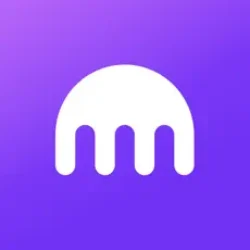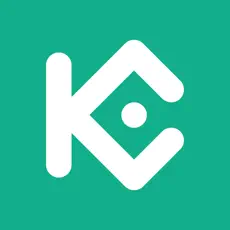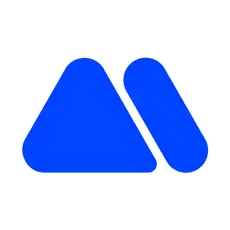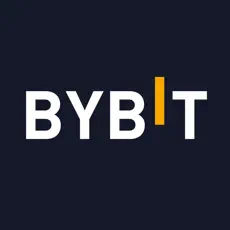Cryptocurrency Exchanges Security Ranking (April 2025 Updated)
Explore the top 10 cryptocurrency exchanges ranked for security in April 2025, from Coinbase’s zero-hack record to Bybit’s $1.4B hack recovery. Compare features, fees, and user experience to trade safely.
Coinbase
Security Rank
#1
Founded in 2012 in San Francisco, Coinbase serves 100M+ users in 190+ countries. With no major hacks, it uses 98% cold storage, 2FA, and offers asset insurance. Highly regulated (SEC, FinCEN), it’s beginner-friendly with a sleek interface. In 2025, Coinbase expanded custody services and staking, but high fees (up to 2%) and limited coin variety remain drawbacks.
Pros
- High compliance
- Asset insurance
- Beginner-friendly
Cons
- High trading fees
- Limited asset variety
Kraken
Security Rank
#2
Founded in 2011 in San Francisco, Kraken is a pioneer in crypto exchanges, serving 10M+ users across 190 countries. Never hacked, it employs 95% cold storage, multi-signature wallets, and 2FA. Kraken holds U.S. licenses (FinCEN, NY BitLicense), ensuring high compliance. In 2025, it enhanced institutional custody and 24/7 support, solidifying its top security ranking, though its interface lags behind newer platforms.
Pros
- No hack incidents
- High U.S. compliance
- 24/7 customer support
Cons
- Outdated interface
- Strict KYC requirements
Binance
Security Rank
#3
Launched in 2017, Binance, based in Malta, is the world’s largest exchange with 120M+ users. Scoring 91.43/100 on Certik, it maintains a $1B SAFU fund, 90% cold storage, and 2FA. Despite a 2019 hack ($40M), funds were reimbursed. In 2025, Binance improved compliance post-$4B U.S. settlement, offering low fees (0.1%) and DeFi, though regulatory scrutiny persists.
Pros
- $1B insurance fund
- Low fees (0.1%)
- High liquidity
Cons
- 2019 hack incident
- Regulatory uncertainty
OKX
Security Rank
#4
Founded in 2017 in Seychelles, OKX serves 50M+ users globally. With no major hacks, it uses 95% cold storage, multi-sig wallets, and AML compliance. OKX supports 300+ coins, NFTs, and DeFi, with low fees (0.08% maker). In 2025, it strengthened security audits and Dubai licensing, but U.S. restrictions and a complex interface for beginners limit its appeal.
Pros
- No major hacks
- Low fees (0.08%+)
- NFT and DeFi support
Cons
- Restricted in the U.S.
- Learning curve for beginners
Bitget
Security Rank
#5
Established in 2018 in Singapore, Bitget serves 20M+ users with 1200+ cryptocurrencies. No hacks reported, it offers 100% reserve proof, 90% cold storage, and 2FA. Known for copy trading and futures, Bitget gained traction in 2025 with enhanced security audits. Low regulation and a complex platform for advanced features, however, hinder its ranking despite strong performance.
Pros
- No hack incidents
- Copy trading feature
- 1200+ cryptocurrencies
Cons
- Low regulatory compliance
- Complex advanced features
KuCoin
Security Rank
#6
Founded in 2017 in Seychelles, KuCoin supports 20M+ users and 600+ coins. A 2020 hack ($275M) was resolved with full recovery. In 2025, KuCoin bolstered security with 90% cold storage, 2FA, and audits. It offers low fees (0.1%), staking, and an NFT marketplace, but slow support and past hack concerns lower its ranking despite improvements.
Pros
- 600+ cryptocurrencies
- Low fees (0.1%+)
- NFT marketplace
Cons
- 2020 hack incident
- Slow customer support
MEXC
Security Rank
#7
Launched in 2018 in Seychelles, MEXC supports 2950+ cryptocurrencies and 10M+ users. No major hacks, it uses 85% cold storage and 2FA. MEXC’s 0% futures maker fee and no-KYC option attract traders, but low regulation raises trust concerns. In 2025, it expanded futures and staking, yet its less intuitive interface limits broader adoption.
Pros
- 2950+ cryptocurrencies
- 0% futures maker fee
- No KYC required
Cons
- Low regulatory compliance
- Less intuitive interface
HTX (Huobi)
Security Rank
#8
Founded in 2013 in China, now Seychelles-based, HTX serves 40M+ users, dominating Asia. A 2019 hack ($10M) prompted 90% cold storage and 2FA upgrades. In 2025, HTX enhanced staking and API trading, but moderate regulation and fewer trading pairs limit its rank. Its strong Asian presence and lending options remain key strengths.
Pros
- Strong Asian market presence
- Staking and lending
- API support
Cons
- 2019 hack incident
- Fewer trading pairs
Gate.io
Security Rank
#9
Established in 2013 in the Cayman Islands, Gate.io supports 15M+ users and 1400+ coins. No major hacks, it uses 80% cold storage and 2FA, but low transparency and regulation dent trust. In 2025, Gate.io added trading bots and multilingual support, yet its lack of regulatory clarity and complex interface keep it lower-ranked.
Pros
- Supports numerous cryptocurrencies
- Trading bots
- Multilingual support
Cons
- Low regulatory compliance
- Limited transparency
Bybit
Security Rank
#10
Founded in 2018 in Singapore, Bybit serves 10M+ users with TradingView integration. A February 2025 hack ($1.4B, Safe{Wallet} attack) exposed supply chain flaws. Swift response covered losses, and 2025 saw 85% cold storage and Dubai licensing. Low fees (0.02%) and futures trading shine, but the hack and security gaps drop its rank.
Pros
- Swift crisis response
- Dubai regulation
- TradingView integration
Cons
- 2025 hack incident
- Supply chain vulnerability









